Discovering Europe by train: our student Robin Nizou’s ecological journey to Norway
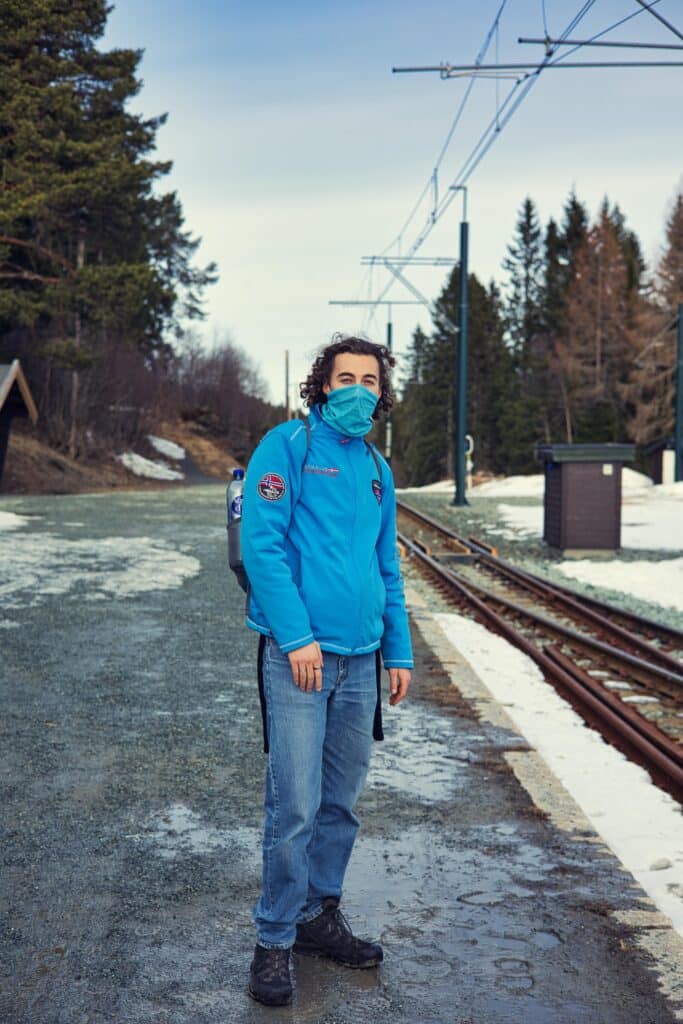

At a time when environmental concerns are playing an increasingly central role in our societies, some young people stand out for their concrete commitment. Such is the case of Robin Nizou, a 24-year-old student who chose to travel by train rather than plane to Trondheim, Norway, as part of an ATHENS (Advanced Technology Higher Education Network) week. Born in the United States and raised in a riding school in Les Bréviaires, Yvelines, Robin embodies a generation aware of environmental challenges and ready to take action for a more sustainable future.
After receiving an e-mail informing him of his posting to Norway for the ATHENS program, Robin questioned his willingness to participate, not wishing to fly for just a week’s travel. Encouraged by one of his friends to take an Interrail Pass, he then asked Matthieu Mazière, Director of Studies in charge of the Civil Engineers program and teacher-researcher, if it would be possible for him to be absent from his classes in Paris, which he accepted, as the trip would require several days. The initial funding of 300€ for the ATHENS weeks, intended for train travel – which was no more expensive than a plane ticket – meant that another source of funding had to be found for accommodation throughout the trip.
Matthieu Mazière recommended that he apply to the Fondation Mines Paris for funding, in exchange for a project to be handed in.
Robin Nizou’s academic career reflects his thirst for discovery and openness to the world. After entering HEC through the direct admission entrance exam, he continued his studies at Mines Paris – PSL for two years, where he also enrolled in a master’s degree in environmental economics at APT. It was in this context that he seized the opportunity to take part in the ATHENS program, which offers students the chance to attend a week-long course at a partner university in Europe. For Robin, this experience was much more than a simple academic immersion: it was a chance to live an international adventure and discover new horizons.
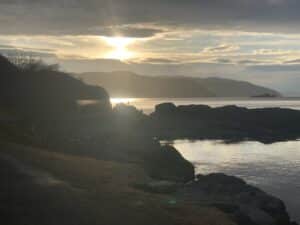
Robin’s project bears witness to a profound awareness of the environmental issues associated with modes of transport. Aware that the train is more virtuous than the plane on the majority of Life Cycle Assessment (LCA) criteria, he chose to favor this option despite the additional constraints it entailed. This choice was not only motivated by ecological considerations, but also by a desire to live an authentic experience, far from the traditional tourist trails. Robin considers that the opportunities offered by air travel and rail travel are incomparable. Indeed, as part of his ATHENS week, those who flew visited Trondheim and the surrounding area, but were unable to get an idea of the rest of the country, or of what neighboring countries such as Sweden or Denmark are like. So, although Robin wasn’t originally naturally drawn to this part of Europe, he used the experience to discover the world and culture of Scandinavia.
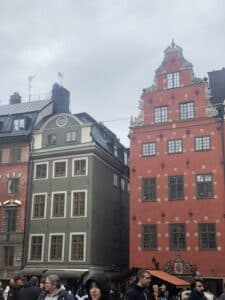
Organizing a train trip across Europe requires careful planning and a good dose of creativity. For Robin, this meant not only mapping out a coherent itinerary, but also finding affordable and authentic accommodation solutions. Exploring the possibilities offered by the Interrail Pass, he mapped out his itinerary, juggling the constraints of time, budget and logistics. By using CouchSurfing, a site that connects people offering a bed or sofa to sleep on, for 8 of the 16 nights of the trip, he was able to meet local hosts and discover the culture of each destination in a more intimate way. From buying tickets to finding activities to dealing with the unexpected, every stage of the trip was an opportunity to push one’s limits and show resilience.
To document his journey and honor the funding he received from the Fondation Mines Paris, Robin documented his trip through a vlog format video, as well as tracking his itinerary on Polarsteps. Affectionate with storytelling and entertainment, setting up this digital travel diary project posed no difficulties for him, as Polarsteps enabled him to geolocate his experience. He added photos and poems written along the way. Furthermore, in order to meet people and take part in interesting activities during his trip, Robin posted stories on Instagram retracing his journey, signaling that he was open to any proposals. His contacts responded with ideas, allowing him, for example, to be hosted by a friend in Stockholm.
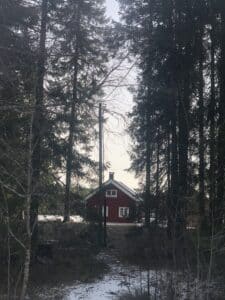
Robin’s journey didn’t end when he returned to Paris. He leaves behind not only lasting memories, but also a reflection on his commitment. At Mines Paris – PSL, students are made aware of the need to reduce the use of airplanes, and the people around him welcomed his initiative.
When she arrived in Trondheim, the students were surprised by her choice of transport.
The participants of different nationalities had arrived the day before, and when they saw me arrive on Sunday morning with my huge bag, they thought I was crazy. But they were very curious about my journey and thought it was great.
Robin’s journey is much more than a simple escapade across Europe: it’s an affirmation of his commitment and an exploration of himself. By sharing his experiences through his vlog and stories, he inspires those around him to rethink the way they travel, and to favor more sustainable modes of transport. By choosing the train as his mode of transport, he has not only reduced his carbon footprint, he has also paved the way for a new form of travel, one that is more intimate, authentic and conscious.
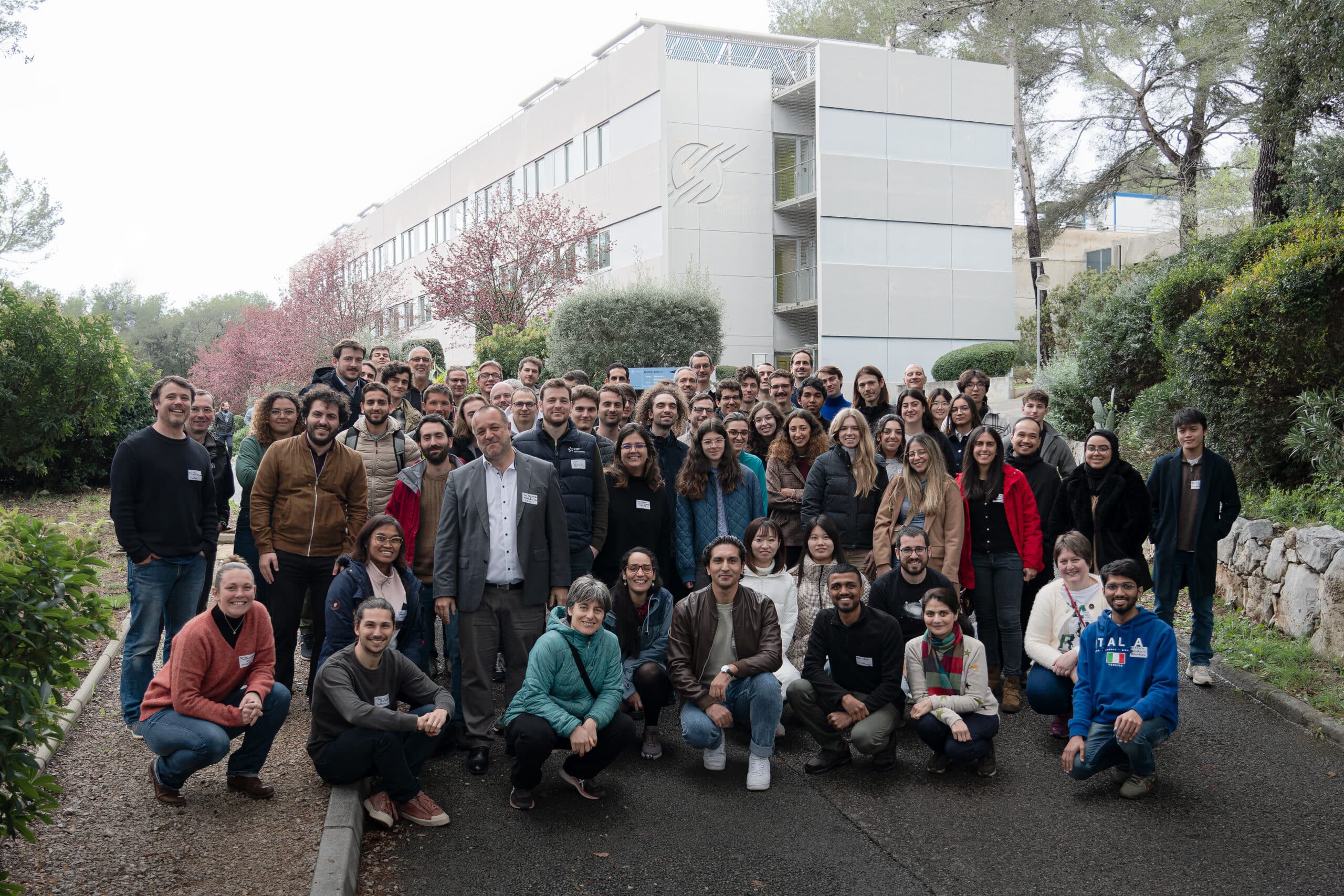
In partnership with the SciDoSol sponsorship chair, the Observation Impacts Énergie center at Mines Paris – PSL is organizing the “Solar Winter School...